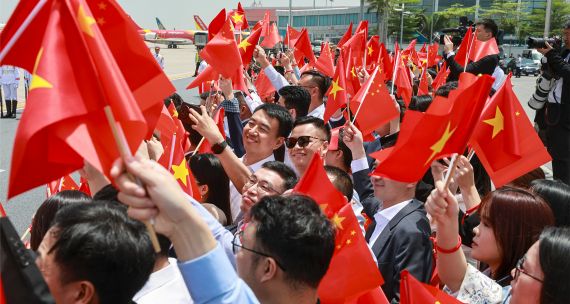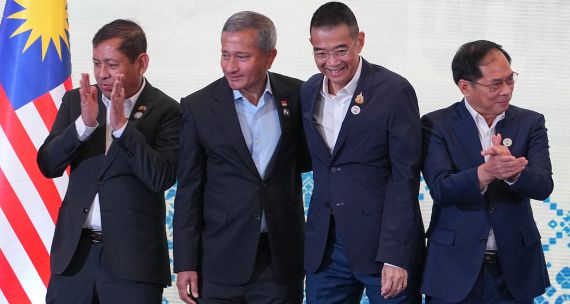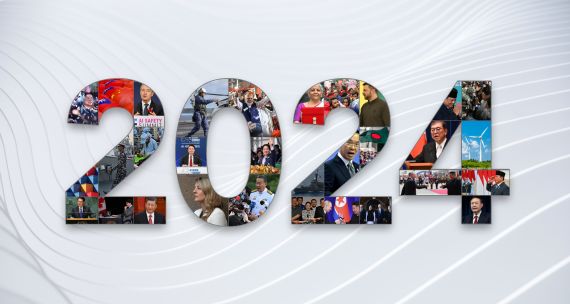The Takeaway
In early February, the 10-member Association of Southeast Asian Nations (ASEAN) released its much-anticipated governance model for artificial intelligence (AI), the ASEAN Guide to AI Governance and Ethics. The model takes a non-binding approach to AI development, putting forward a set of guidelines for governments and businesses to follow as they develop and use AI systems in the region.
ASEAN has the world’s fastest-growing internet market and a digital economy projected to grow substantially. As such, the governments of its member states, like other governments worldwide, are trying to implement mechanisms that provide oversight of these powerful technologies while also ensuring that they remain competitive in this rapidly evolving market.
In Brief
- The ASEAN Guide was published on February 2 at the 4th ASEAN Digital Ministers’ Meeting. It highlights seven principles (transparency, fairness, security, reliability, human-centricity, privacy, and accountability) for the design, development, and deployment of AI systems in Southeast Asia.
- The Guide targets traditional AI systems, that is, applications such as Google Search or voice assistants like Siri or Alexa that can perform specific planned tasks. It does not cover advanced generative AI systems that can create content, such as ChatGPT. However, the Guide is a living document, meaning that additional guidelines, including guidelines for generative AI, could be added in the future.
- The Guide also includes both national-level and regional-level recommendations. At the national level, it recommends that members embrace AI and ensure they are well-positioned to leverage the technology. At the regional level, it recommends the creation of an ASEAN working group on AI to oversee AI governance initiatives in the region and that the Guide be used as a foundation for further elaboration of governance guidelines, specifically for generative AI.
Implications
ASEAN seeks balance between under- and over-regulating. With AI poised to revolutionize societies, creating as many risks as opportunities, ASEAN is looking for a balanced framework to allow its members to capitalize on the technology while also minimizing its negative impacts. The only other regional framework produced thus far is the European Union’s AI Act, which takes a risk-based approach and includes compliance obligations and enforcement mechanisms. In contrast, the ASEAN guidelines are meant to serve as “regional best practice guidance,” with their adoption being entirely voluntary and not replacing any member state’s laws or regulations.
Is there an emerging East-West divide on AI? While efforts to manage and regulate AI accelerated in 2023, there has been little agreement among governments around the world about how AI should be regulated. Several countries have proposed different frameworks, leading to a fragmented and confusing global regulatory landscape. It has been reported that EU lawmakers lobbied some ASEAN member states last year to adopt their more “stringent approach,” but the Southeast Asian group opted instead for a much more hands-off approach. Although this was expected due to the region’s diversity of domestic regulations and varying levels of socioeconomic development, ASEAN could eventually adopt tougher, legally binding rules. Much will depend on how the technology evolves and whether the EU’s AI Act proves to be a model that ASEAN might want to emulate.
What’s Next
Regional adoption. The publication of ASEAN’s AI Guide will not prevent individual Southeast Asian countries from launching their own AI policies. In fact, several countries already have national AI strategies and are developing AI regulations. For example, in December 2023, Singapore updated its 2019 National Artificial Intelligence Strategy, and Indonesia is reportedly close to releasing a set of guidelines on AI ethics. The Philippines recently announced its intention to propose a Southeast Asian regulatory framework based on its own draft legislation when it takes on the ASEAN rotating chair in 2026. For now, a good test for ASEAN’s AI Guide will be how member states incorporate this most recent set of principles into their national frameworks.
ASEAN’s growing digital economy. Southeast Asia’s digital economy is projected to add an estimated US$1 trillion to the region’s combined gross domestic product by 2030. AI will be a driving force of this growth and will become an integral part of the region’s digital transformation.
Canada is legislating on AI. As the Canadian government is considering its own AI regulations, it could glean much from relevant efforts by other countries and institutions, including ASEAN. Canada’s Artificial Intelligence and Data Act (AIDA), currently being examined by the House of Commons Standing Committee on Industry and Technology, will frame the development and usage of AI systems in Canada, adding to the growing global patchwork of national frameworks.
• Written by Charles Labrecque, Research Director. Editor: Erin Williams, Senior Program Manager. Graphic Design: Chloe Fenemore.





